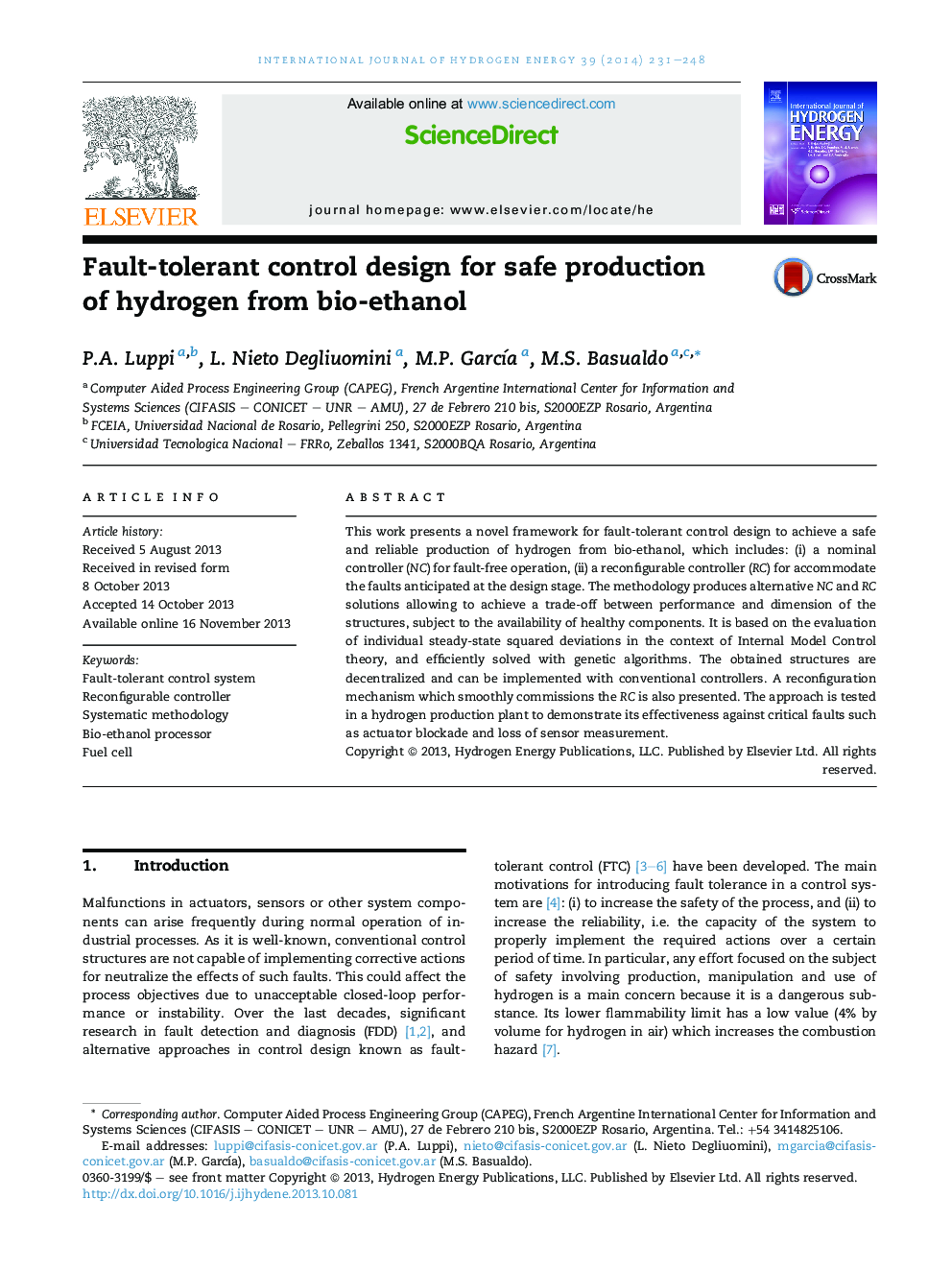| Article ID | Journal | Published Year | Pages | File Type |
|---|---|---|---|---|
| 1273935 | International Journal of Hydrogen Energy | 2014 | 18 Pages |
•Novel framework for reconfigurable fault-tolerant control design.•Design based on the individual steady-state squared deviations in the context of IMC theory.•Stability and performance are maintained through an efficient management of the redundancies.•A reconfiguration mechanism which minimizes the switching transients is implemented.•Typical faults such as actuator blockade and loss of sensor measurement are considered.
This work presents a novel framework for fault-tolerant control design to achieve a safe and reliable production of hydrogen from bio-ethanol, which includes: (i) a nominal controller (NC) for fault-free operation, (ii) a reconfigurable controller (RC) for accommodate the faults anticipated at the design stage. The methodology produces alternative NC and RC solutions allowing to achieve a trade-off between performance and dimension of the structures, subject to the availability of healthy components. It is based on the evaluation of individual steady-state squared deviations in the context of Internal Model Control theory, and efficiently solved with genetic algorithms. The obtained structures are decentralized and can be implemented with conventional controllers. A reconfiguration mechanism which smoothly commissions the RC is also presented. The approach is tested in a hydrogen production plant to demonstrate its effectiveness against critical faults such as actuator blockade and loss of sensor measurement.
